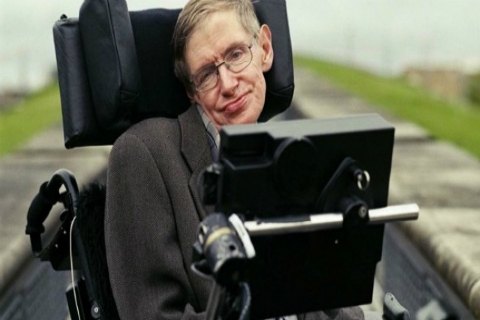The world-renowned physicist, despite suffering from a rare disease which left him bound to a wheelchair at the age of 22, was also a best-selling author of numerous books.
Stephen W. Hawking, the best-selling author and Cambridge University physicist who pondered on the secrets of the cosmos from his wheelchair, has died on Wednesday at his family home in Cambridge, England. He was 76.
The British scientist was renowned for his theories explaining black holes and relativity, and was an author of several best-selling science books, including ‘’A Brief History of Time’’.
What is remarkable about his life, in addition to the ground-breaking discoveries that he made, was his endurance to tackle one of the greatest hardships which life could throw at a person.
At the age of 22, when he was still a graduate student, Hawking learned that he had amyotrophic lateral sclerosis, a rare neuromuscular wasting disease. The doctors at that time only gave him a few more years to live.
While the disease enveloped his whole body – he couldn’t flex a finger or move his eyelid on his own – his mental faculties were left untouched.
Making the most of what he had, Stephen Hawking became the greatest scientist since Albert Einstein as he explored gravity and the characteristics of black holes.
During his study, in the closing stages of 1973, Hawking made a discovery which stunned the world: black holes were not black. In fact, as Hawking told us, Black holes, after leaking radiations and particles, would eventually fizzle out and vanish over the eons.
That calculation was so stunning that scientists to this day hail it as the first great achievement in the struggle of mankind to find a single theory which explains nature.
Afterward, he worked with British mathematician Sir Roger Penrose to explain that the hidden meaning of Einstein’s general theory of relativity. The theory, as their research would go on to tell, implied that that space and time started with the Big Bang and would end with the Black holes.
While he was already endearing to the academic community, what made Stephen Hawking famous worldwide was his book ‘’A Brief History of Time’’. As he wrote in the preface of the updated edition of the book, ‘’A Brief History of Time’’ is the 2nd most sold book in history, after Bible.
Once he started to get fame outside the academic world, Stephen Hawking appeared in several TV shows including Red Dwarf, The Big Bang Theory, and The Simpsons. He was also portrayed in both film and TV – with the recent adaptation coming from Oscar-winning actor Eddie Redmayne.
